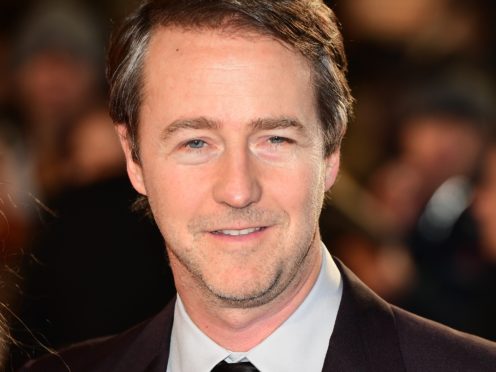Edward Norton has compared the presidency of Donald Trump to a murderous political thriller.
The star has found parallels between the current US president’s rise to power and The Manchurian Candidate.
A presidential hopeful is targeted for assassination in the 1962 thriller’s plot, to pave the way to power for an American leader who has been stirring domestic turmoil.
Watch intrigue and drama unfold in the trailer for #MotherlessBrooklyn, starring Writer/Director @EdwardNorton, Bruce Willis, @GuguMbathaRaw, with @AlecBaldwin and Willem Dafoe. Only in theaters November 1. pic.twitter.com/uZHpFRvzQY
— Motherless Brooklyn (@MotherlessBKLYN) August 22, 2019
Leading man Norton has said there are comparisons to be made with the presidency of Mr Trump.
The actor also said the post-Brexit era was primed for the shady, power-hungry themes of classic film noir.
Norton spoke after starring in the modern noir Motherless Brooklyn, playing an outsider tackling the potency of secretive power.
He said the two-decade preparation for the film meant it arrived after the the Brexit referendum and the US election, making its themes more relevant.
Writer, director and leading man Norton said of Mr Trump’s tenure: “I call this The Manchurian Candidate presidency.”
He added: “Post-2016, post-Brexit, the idea of the danger of power being in place that we can’t see, of people who are inclined from their positions of power to view other people as invisible, these are timeless themes of noir, what goes on in the shadows.
“I think sometimes those films are best when we’re feeling it, when we’re feeling very uncomfortable about what’s going on, out of sight from us.”
Norton spoke to PA news agency ahead of the UK release of Motherless Brooklyn, which follows a detective with Tourette syndrome as he investigates the death of a friend.
The actor initially decided to make the film in 1999 – the same year as Fight Club was released – but has happily been frustrated in the passion project by offers from notable directors.
Norton made clear he was not a eremite, obsessional writer focused entirely on a definitive project, but let the work mature in its own time.
He said: “Most people have a lot of threads they’re weaving at the same time, this is something I was sort of weaving at a slow pace in the background while doing a lot of other stuff people would have seen.
“In many ways the reason it took me a while was because Wes Anderson would ring up and say ‘do you want to do a film?’ or Spike Lee would ring up and say ‘do you want to do a film?’.
“Those were happy reasons to delay a thing. It needed a lot of mediation for me to figure out what I wanted to do with it.
“In a lot of ways honestly what’s gone on in the world has made this very much the right time to do this film.”
Norton was joined by Thom Yorke, who provided part of the soundtrack to the film, at an underground jazz club in London, where he discussed the music of the the film.
Motherless Brooklyn is set for UK release on December 6.
